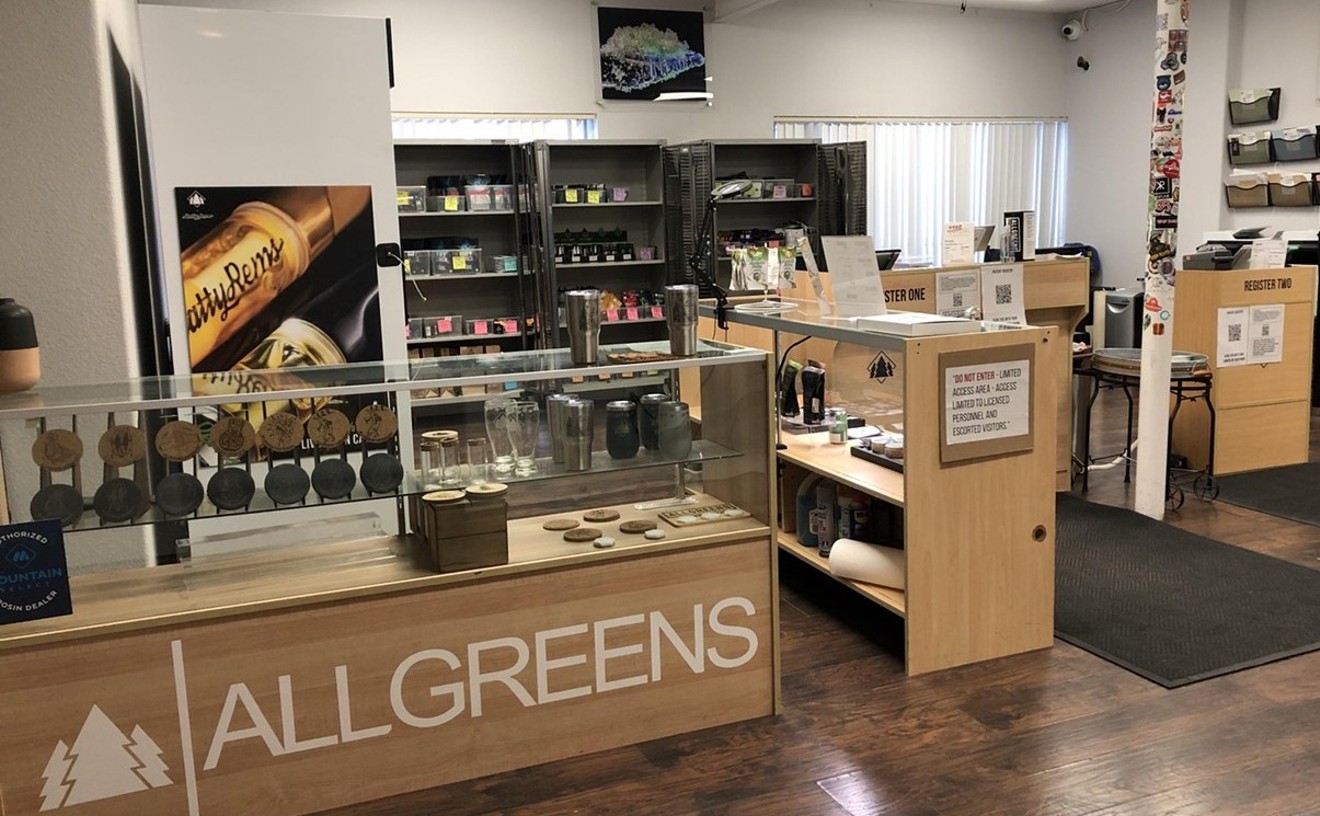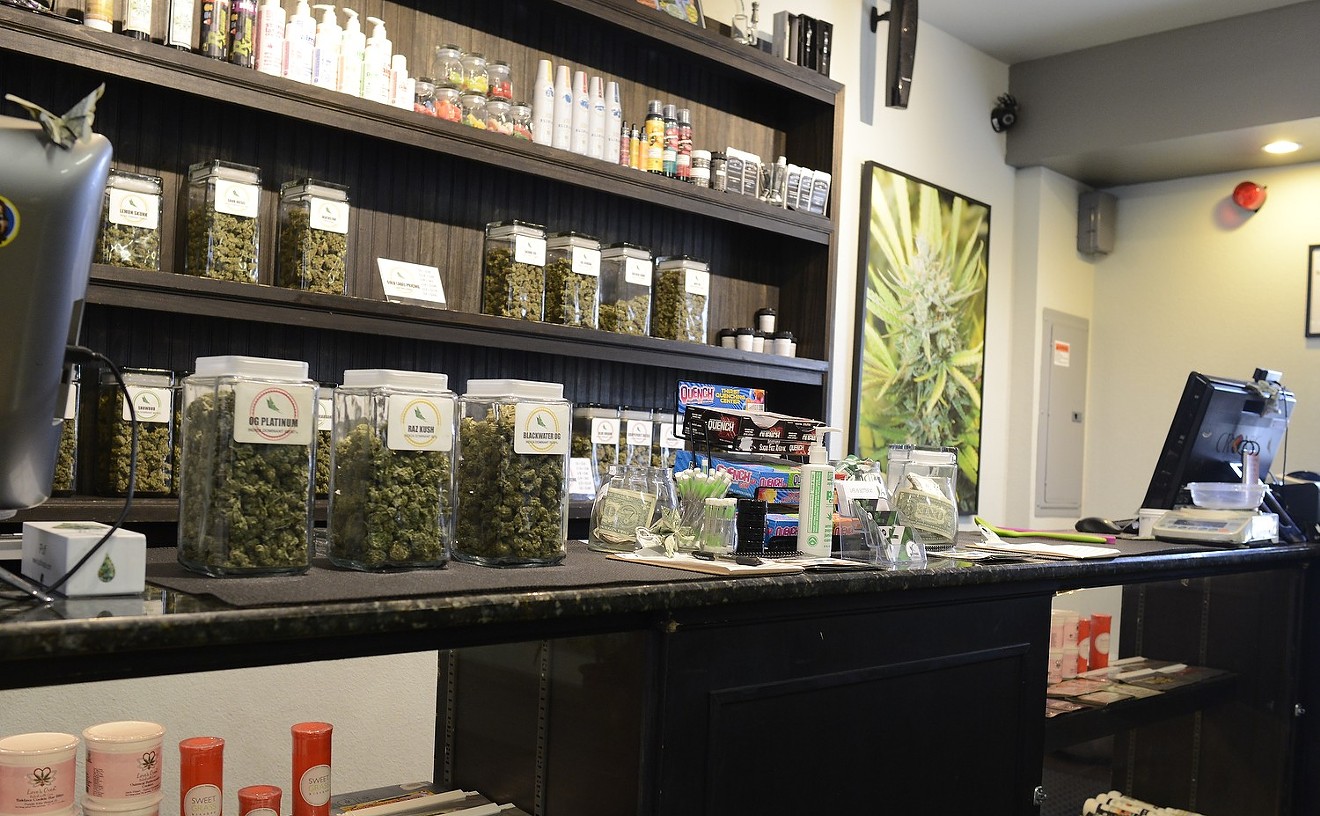A Denver City Council marijuana committee met on the snowy afternoon of Monday, January 28, to consider extending Initiative 300, the voter-approved measure that created a permitting program for social pot use at qualified businesses.
Entrepreneurs interested in social use businesses had been pushing council to extend or remove the sunset provision, saying the 2020 end date was scaring off investors and conflicting with the length of most commercial lease agreements.
Most committee members said that removing the sunset might help a small handful of applicants — described by councilmembers Kendra Black and Jolon Clark as "less than a trickle" — enter the arena. Still, the committee approved a measure that will ask the full council to consider extending I-300 for an undetermined amount of time or repealing the sunset provision altogether.
"There are so many obstacles, I don't think we're in danger of opening the floodgates," Black said to her colleagues.
Councilman Kevin Flynn opposed eliminating the sunset in favor of a "shot-clock" to force the city to address I-300's issues with location and business models. Unsatisfied with I-300's progress, Flynn suggested that the problem could be the initiative itself.
"Maybe this was made to fail," Flynn said to his colleagues. Clark, who has expressed a desire to start over on social consumption in the past, agreed.
With just three social use applications and two approvals in over seventeen months since the program's debut, the committee has been meeting since October, trying to figure out how to entice more applicants. Local entrepreneurs and I-300 proponents point to a lack of profitable business models and harsh location restrictions as the program's main drawbacks, and that's the majority of what the marijuana committee has been discussing.
I-300's only location restriction included a 1,000-foot distance requirement from any school when it passed in 2016. But the Denver Department of Excise and Licenses later added extra 1,000-foot buffers between any social use location and daycare centers, drug treatment centers and city-owned parks, pools and recreation centers.
I-300 proponents were enraged by the added restrictions, which currently allow around 20.3 square miles of eligible space for I-300 businesses — and according to City and County of Denver Technology Services, approximately seven of those miles comprised cemeteries, golf courses, state-owned entities and other locations that wouldn't accommodate private consumption.
Focused on what it has the power to fix, the committee has been looking at the sunset and location restrictions and has considered slashing every restriction besides schools to 500 feet or allowing social use businesses to operate if they receive support from the restricted location(s) in their vicinity.
However, Denver Technology Services senior analyst Grant Garstka's mapping research shows just over five square miles of new space would be added if the buffers were cut from 1,000 to 500 feet.
There are more roadblocks for social use businesses. A state law mandating that no alcohol or cannabis be sold at I-300 businesses has also severely limited the program's potential, as well as federal restrictions.
"This piece of dirt may be eligible, but a furniture store with a forty-year lease could be sitting on it," Clark explained during the meeting. "Some of these buildings can have federally backed mortgages, too."
Clark added that many eligible businesses on South Broadway and East Colfax already have liquor licenses, which would bar them from applying.
The committee has two more scheduled meetings in February and March to discuss possible resolutions to the location restriction issue, but Black said more meetings could be added to the schedule.
Find Garstka's I-300 maps below to compare the current location restrictions with suggested changes.
[
{
"name": "Air - MediumRectangle - Inline Content - Mobile Display Size",
"component": "12017618",
"insertPoint": "2",
"requiredCountToDisplay": "2"
},{
"name": "Editor Picks",
"component": "17242653",
"insertPoint": "4",
"requiredCountToDisplay": "1"
},{
"name": "Inline Links",
"component": "18838239",
"insertPoint": "8th",
"startingPoint": 8,
"requiredCountToDisplay": "7",
"maxInsertions": 25
},{
"name": "Air - MediumRectangle - Combo - Inline Content",
"component": "17261320",
"insertPoint": "8th",
"startingPoint": 8,
"requiredCountToDisplay": "7",
"maxInsertions": 25
},{
"name": "Inline Links",
"component": "18838239",
"insertPoint": "8th",
"startingPoint": 12,
"requiredCountToDisplay": "11",
"maxInsertions": 25
},{
"name": "Air - Leaderboard Tower - Combo - Inline Content",
"component": "17261321",
"insertPoint": "8th",
"startingPoint": 12,
"requiredCountToDisplay": "11",
"maxInsertions": 25
}
]












